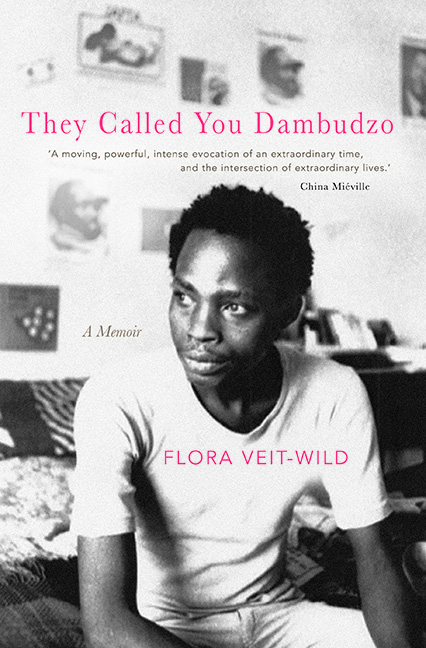Summary
WHEN DAMBUDZO AND I AT LAST had become close again, and the other woman had disappeared into the countryside, I made attempts to consolidate our relationship.
We jostled with the idea of writing letters to each other, exchanging views on literature, sharing experiences, talking about his life and mine; and then publish the correspondence in book form. He seemed enthusiastic. But when I mentioned it again and wanted to make it work, he did not respond.
In fact, Dambudzo never ever wrote a single letter to me. What he felt about us, it was all in his poems, in his writing.
Another project I suggested we tackle together was an anthology of poetry.
I had discussed the idea with Peter Ripken, the representative of the German booksellers at the Zimbabwe International Book Fair. We considered a collection of poetry to introduce Zimbabwean writing, which had started to flourish since the country's independence, to a German readership. Ripken had close ties to Zimbabwean writers and publishers. He knew Dambudzo – they had met some years before at the African Literature Festival in West Berlin in 1979.
‘We could select the poems together and write an introduction,’ I said to Dambudzo. ‘Wouldn't it be good to have something to work on? Otherwise we will continue with these useless discussions …’
‘No. Not with me. You do it, if you like. Why should I work for others if nobody is interested in supporting me?’
‘You would not be working for others,’ I pointed out. ‘You could write about the poets and their poems. You do this so well. And I would just do the correspondence and organise it all.’
‘No, you do your work. Don't try to exploit me. I do my writing, and if nobody wants to publish it, they should all go to hell.’
That was the crux of it. His frustration, his anger about being ignored, about local writers, readers, publishers being too illiterate to appreciate his work.
After he’d moved into his flat, Dambudzo wrote ‘The Depth of Diamonds’, a fairly short novel. He gave it to College Press, to his old friend Stanley Nyamfukudza, together with a bunch of his recent poetry. Nyamfukudza did not know what to do with the poems, whether they were meant as a part of the manuscript or not, and returned the material – all of it – without a comment.
- Type
- Chapter
- Information
- They Called You DambudzoA Memoir, pp. 169 - 171Publisher: Boydell & BrewerPrint publication year: 2022



